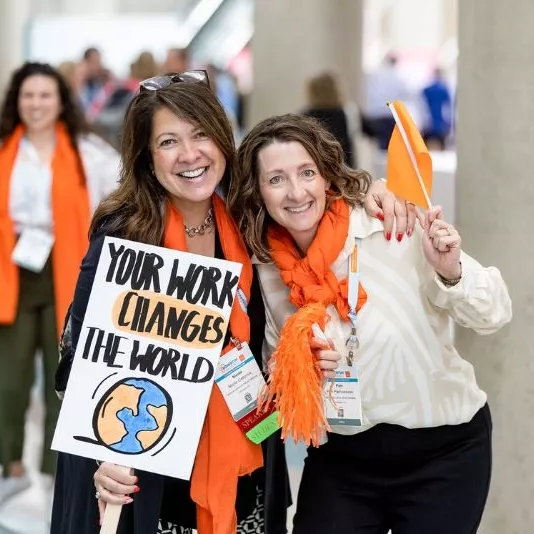On behalf of more than 3,100 member organizations and the over 10 million children, adults and families they serve, the National Council for Mental Wellbeing made significant strides in 2023 toward ensuring a stronger, better-funded and more integrated approach to mental health and substance use care across the country. This annual report highlights our progress and spotlights stories from our community that illustrate how we’re working to make mental wellbeing — including recovery from substance use challenges — a reality for everyone.
A Message from Chuck Ingoglia, President & CEO
“National Council members are at the center of everything we do. We don’t just succeed for our members. We succeed because of them.”
Impact by the Numbers
3,100+
member organizations
3M+
Mental Health First Aiders
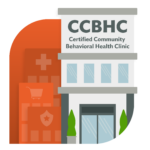
500+
Certified Community Behavioral Health Clinics (CCBHCs)
750
Hill Day at Home participants
5,000+
NatCon23 attendees
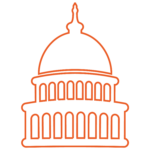
3,000
messages sent to Congress
A Year in Review
Increasing Access to Care
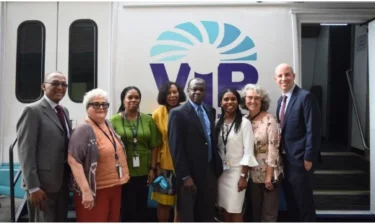
“We grew exponentially with our peer services. We changed the way peer services are delivered and created opportunities for advancement, as well as supervision and training. We have veteran peers, family peers, mental health peers, substance use peers and youth peers who we’ve hired through our CCBHC.”
Making a Mark in 2023
Increasing access to care through the CCBHC model remained a top priority in 2023. We worked to improve the long-term sustainability of CCBHCs by securing congressional funding; getting legislation introduced to ensure the program’s sustainability by establishing definitions within Medicaid and Medicare; and passing CCBHC policies in state legislatures, including Nebraska, where Governor Pillen testified in support of the model, helping ensure the bill was one of the few that passed a filibuster. We also offered strategic recommendations to the Substance Abuse and Mental Health Services Administration (SAMHSA) and the Centers for Medicare and Medicaid Services (CMS) as they updated CCBHC criteria and payment guidance, while also securing a SAMHSA contract for a new CCBHC State Technical Assistance Center that will provide planning and implementation support.
On the advocacy front, we maintained a strong presence on Capitol Hill, with National Council members and leadership featured in several key hearings. In the regulatory space, we kept a consistent cadence of submitting comments and providing resources for our members to advance our collective priorities in response to proposed administrative rules. Along with our coalition partners, we worked with CMS to implement provisions of the Consolidated Appropriations Act, 2023 to allow marriage and family therapists and mental health counselors to be reimbursed through Medicare, and we fought to establish intensive outpatient programs as a benefit under Medicare, helping to improve access for beneficiaries in 2024.
Helping People Help Others

When Mental Health First Aid (MHFA) joined forces with kate spade new york for a second time, hope took center stage. The latest campaign began when the fashion brand saw the profound impact COVID-19 had on mental health in the arts and entertainment industry, prompting it to fund Adult MHFA trainings for artists and entertainers in New York City and New Jersey. With support from Soho House New York, the Entertainment Community Fund and Love IV Lawrence, MHFA conducted 17 trainings for more than 250 people and awarded one Instructor scholarship. This opportunity couldn’t have come at a better time, said Stoney Dvornik, a MHFA Instructor who helped lead the trainings:
“As a Broadway enthusiast and the mother of a full-time Broadway professional, I witnessed the multifaceted toll the pandemic had on that community, specifically the 18-month Broadway shutdown. This initiative has been a godsend to those who were able to become certified Mental Health First Aiders. During the trainings, I observed expressions of relief and hope on the faces of participants. Many expressed how grateful they were to have learned skills and gained confidence to support their peers and themselves through emotional challenges.”
Making a Mark in 2023
We ramped up our work to help more people identify, understand and respond to mental health and substance use challenges. In 2023 alone, we conducted 30,000+ MHFA trainings across the country, resulting in 8,578 Instructors and 470,377 First Aiders — bringing us to 3+ million people trained to date. We also trained some 60,000 employees in MHFA at Work at leading companies like Ford, Rare Beauty and Starbucks, and we released new curricula, including our latest MHFA at Work product suite and community-specific courses like Adult MHFA for Corrections Professionals.
With support from the National Association of Counties, we delivered MHFA trainings to more than eight U.S. counties and their employees, and with funding from Harry’s, we awarded more than 100 Youth MHFA Instructor scholarships through Team: Changing Minds, a national network of mental health responders. In other news, we welcomed 10 behavioral health experts to our MHFA Research Advisory Group; recognized MHFA champions at NatCon23, our annual conference; and earned national press coverage in USA Today, The Washington Post and on “Good Morning America.”
Tackling Substance Use Together
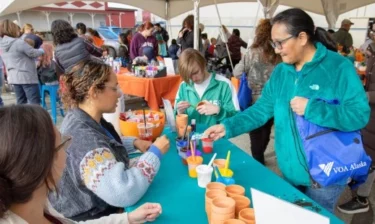
“Fentanyl has been a major concern with our young people. Thankfully, our vast continuum of care allows us to have multiple levels of response. Our team is distributing naloxone during community events; our school-based clinicians are connecting with students and providing support to teachers and families; and our treatment services provide a seamless care transition as youth reach their treatment goals. Those in our care steer the course of their journey, and we walk alongside them, providing connections and services designed to help them achieve their most meaningful goals.”
Making a Mark in 2023
From trainings and technical assistance to advocacy and strategic partnerships, we helped our members get more out of their substance use services in 2023. We conducted Youth Screening, Brief Intervention and Referral to Treatment (YSBIRT) trainings nationwide, equipping providers with the tools to prevent youth substance use; continued our work to advance key substance use disorder legislation in the House and Senate, including the SUPPORT for Patients and Communities Act; and laid the groundwork for Start with Hope, a national substance use prevention campaign with The Ad Council.
With support from the Centers for Disease Control and Prevention (CDC), we launched a program that provided 25 grants to community-based health organizations to support overdose prevention efforts, along with eight grants for pilot projects to advance and public safety partnerships. We also introduced resources like a National Council Medical Director Institute report about the prevalence of drugs adulterated or laced with fentanyl and an online Cannabis Resource Center, which helps adults learn more about cannabis policies, prevention and treatment.
Investing in Our Workforce
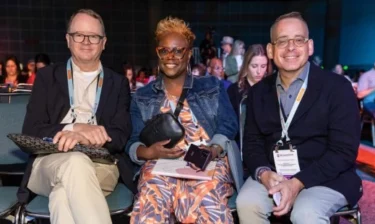
“I came away from the conference feeling much more validated in my concerns regarding clinician shortages and the impact it has on the quality of care. I am hopeful the efforts being put forth by the National Council on a national level will help to alleviate the workforce challenges we face in behavioral health. I also learned a great deal regarding same-day access and the use of outcomes-based treatment strategies that I hope to implement.”
Making a Mark in 2023
The workforce shortage is one of the greatest problems facing our field. To help, we launched The Center for Workforce Solutions, which uses a collective impact approach to provide innovative, actionable strategies to address the crisis. We also invested in rising leaders through our Middle Management Academy and Practice Transformation Academy, while conducting trainings and technical assistance on evidence-based practices like Trauma-informed, Resilience-oriented Services.
At the federal policy level, we helped send 1,000 letters to Congress in support of workforce bills, such as the Improving Access to Mental Health Act and the Mental Health Professionals Workforce Shortage Loan Repayment Act. And with the Mental Health Liaison Group, we launched the bipartisan Senate Mental Health Caucus to advance legislation that supports the workforce and expands access to care. We also created new resources to educate the field — from change packages and toolkits for providers to virtual learning events and an impactful study about the state of our workforce.
2022/2023 Financials
View our 2022/2023 Consolidated Statement of Financial Position and Consolidated Statement of Activities.
Our Appreciation
Thank you to our Board of Directors for their guidance and leadership throughout the year. And thank you to our valued National Council Partners for helping us make an impact.

